Do you search for 'linguistic relativity hypothesis'? Here you can find questions and answers on the topic.
Table of contents
- Linguistic relativity hypothesis in 2021
- The linguistic relativity hypothesis quizlet
- The sapir whorf hypothesis states that
- Linguistic determinism example
- Sapir whorf hypothesis example
- Linguistic relativity hypothesis mcat
- Sapir-whorf hypothesis example
- Linguistic relativity hypothesis example
Linguistic relativity hypothesis in 2021
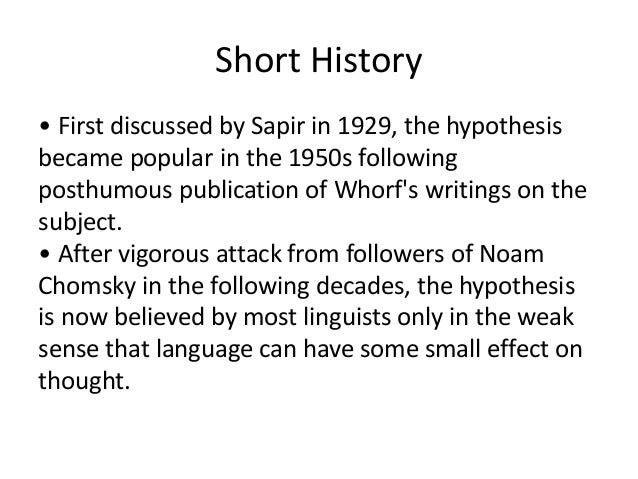 This image representes linguistic relativity hypothesis.
This image representes linguistic relativity hypothesis.
The linguistic relativity hypothesis quizlet
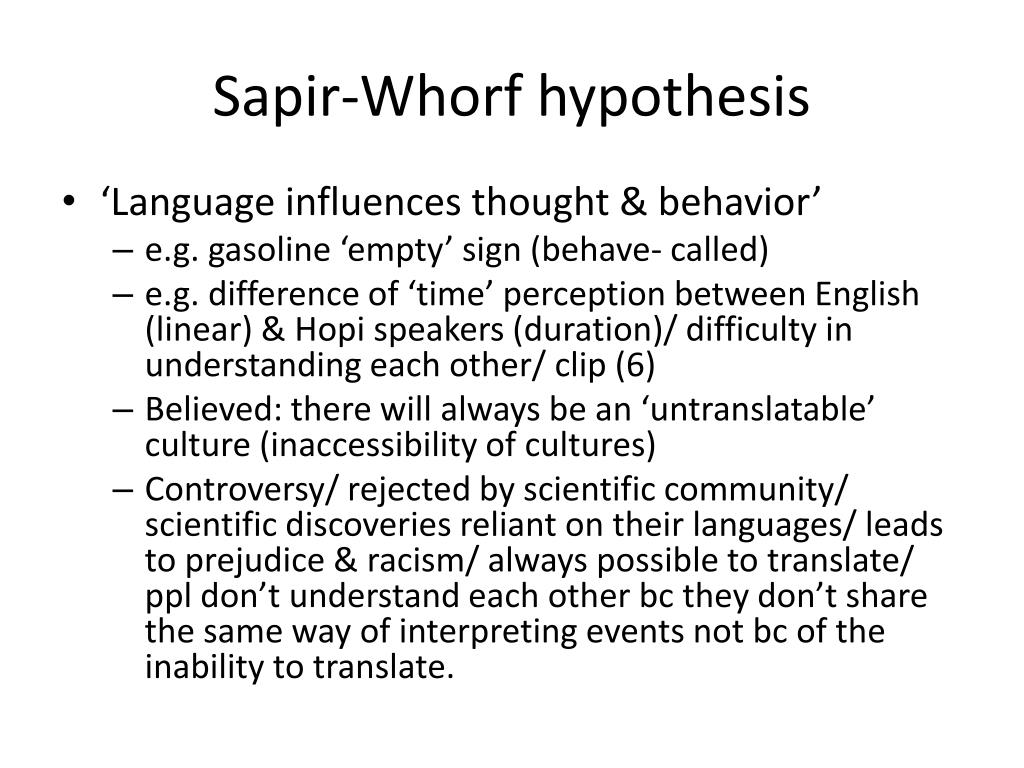 This picture representes The linguistic relativity hypothesis quizlet.
This picture representes The linguistic relativity hypothesis quizlet.
The sapir whorf hypothesis states that
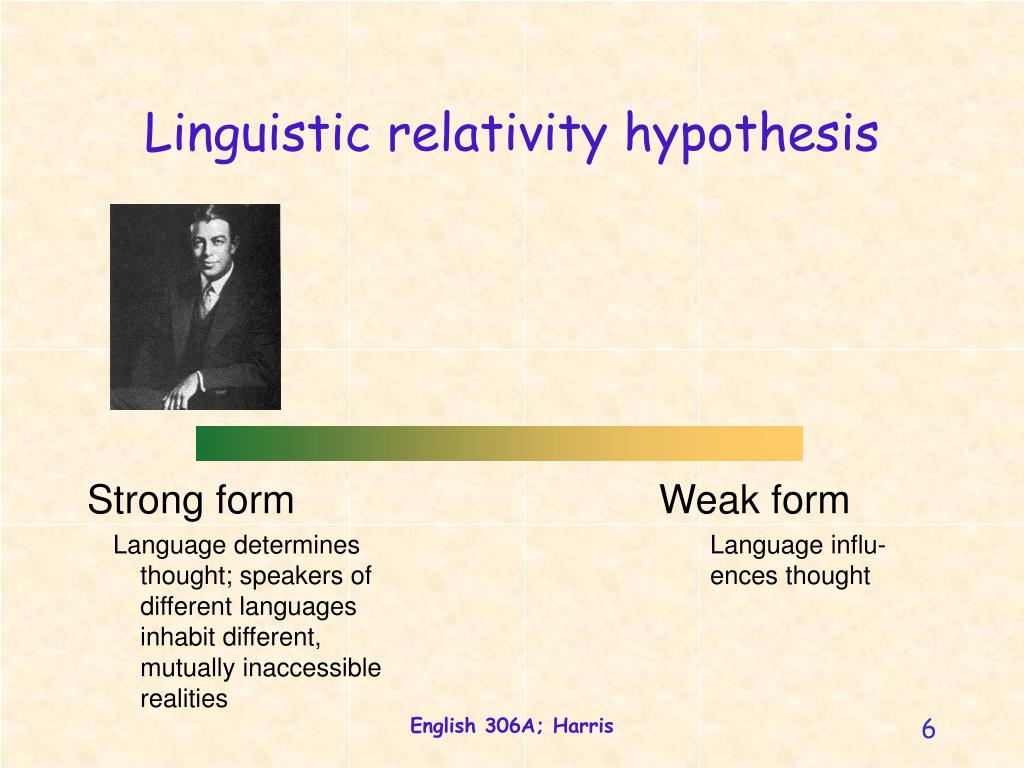 This picture illustrates The sapir whorf hypothesis states that.
This picture illustrates The sapir whorf hypothesis states that.
Linguistic determinism example
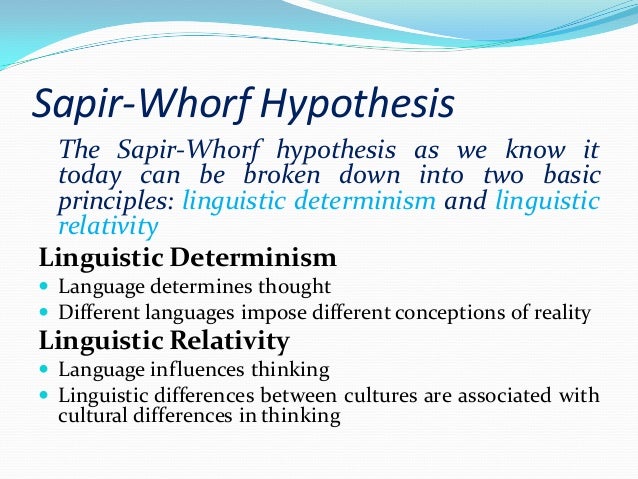 This picture representes Linguistic determinism example.
This picture representes Linguistic determinism example.
Sapir whorf hypothesis example
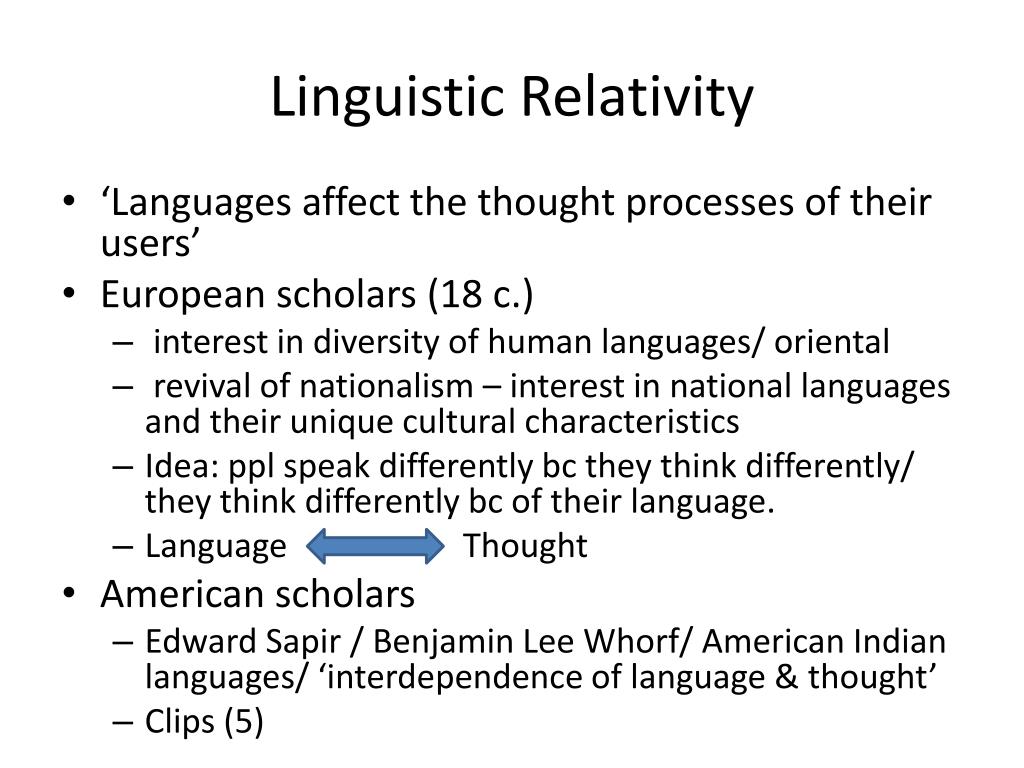 This picture representes Sapir whorf hypothesis example.
This picture representes Sapir whorf hypothesis example.
Linguistic relativity hypothesis mcat
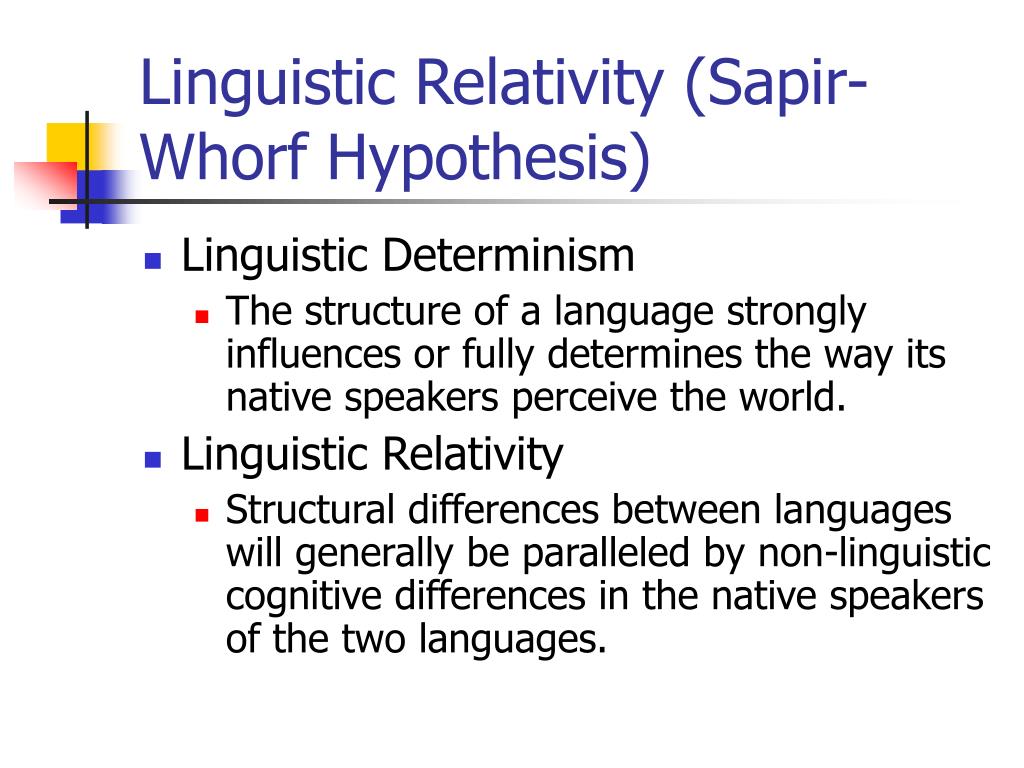 This image illustrates Linguistic relativity hypothesis mcat.
This image illustrates Linguistic relativity hypothesis mcat.
Sapir-whorf hypothesis example
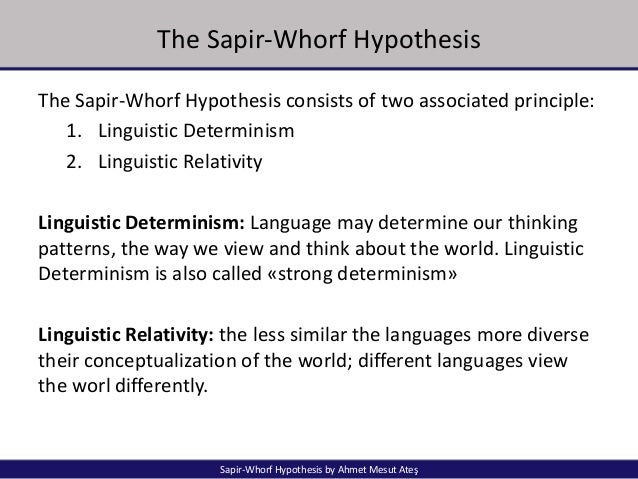 This picture shows Sapir-whorf hypothesis example.
This picture shows Sapir-whorf hypothesis example.
Linguistic relativity hypothesis example
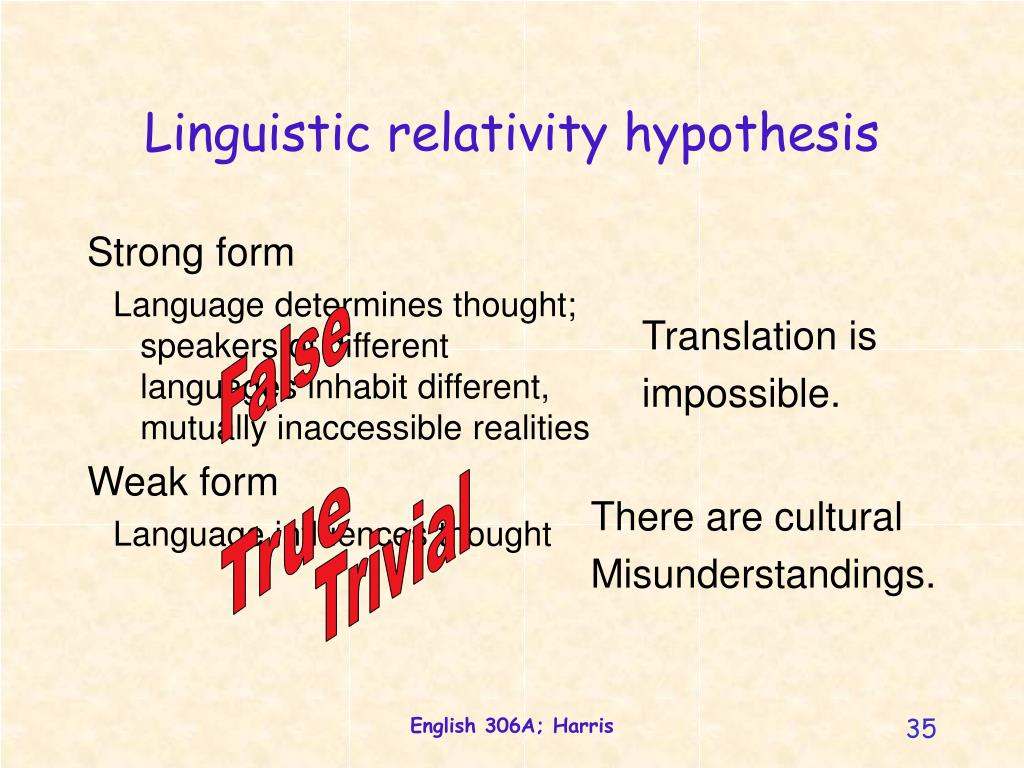 This image illustrates Linguistic relativity hypothesis example.
This image illustrates Linguistic relativity hypothesis example.
How did Sapir and Whorf come up with linguistic relativity?
Linguistic relativity. The distinction between a weak and a strong version of this hypothesis is also a later invention; Sapir and Whorf never set up such a dichotomy, although often in their writings their views of this relativity principle are phrased in stronger or weaker terms.
How is linguistic relativity related to spatial deixis?
Unlike spatial deixis, the linguistic study of time remains sparse in anthropology. Yet the famous Sapir–Whorf hypothesis of linguistic relativity was initially popularized through the alleged absence of Hopi verb tenses (now disproved).
Which is the stronger version of the language hypothesis?
Weak version - Structure and usage of language influences thought and behavior (linguistic relativity). The strong version of the hypothesis has largely been refuted, but the weaker versions are still being researched and debated as they often tend to produce positive empirical results.
How does the theory of linguistic relativity relate to language?
The theory of linguistic relativity consists of the hypothesis that the structure of a language and the way it is formed expresses a lot about the manner the speakers view and understand the world. In other words, a language’s structure affects its speaker’s worldview or cognition.
Last Update: Oct 2021